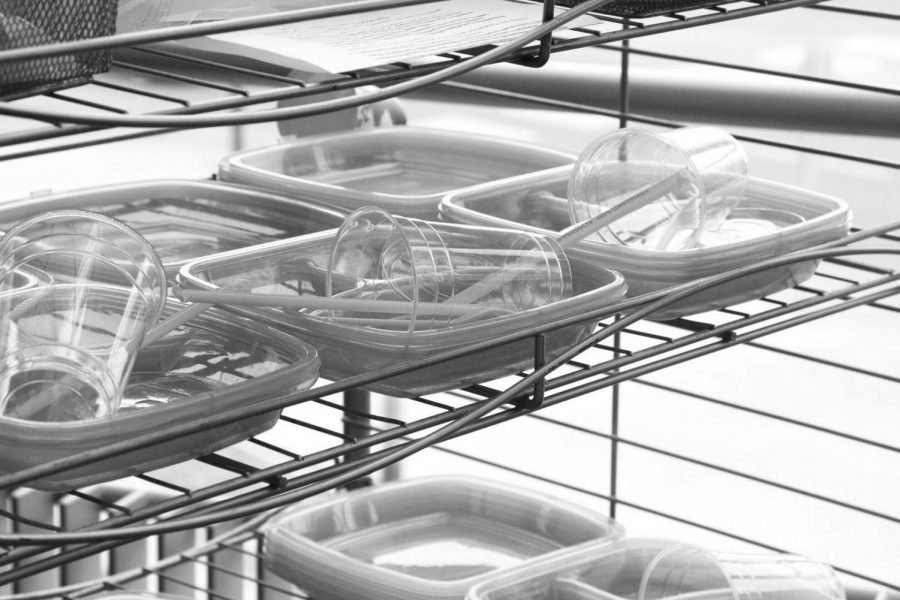St. Paul reduces take-out waste
The City of Saint Paul has banned black styrofoam and plastic to-go boxes, among other products, in an effort to reduce landfill wastes in the Twin Cities.
Reuseable take-out containers are available at the Bishop’s Bistro.
April 10, 2019
In an effort to reduce landfill pollution, the city of Saint Paul has passed legislation banning certain takeout containers from restaurants and convenience stores, specifically those made of “non-sustainable materials,” such as certain plastics and styrofoam. The ban takes effect on Jan. 1, 2021, requiring restaurants and convenience stores to only use “sustainable packaging,” which is legally defined as “compostable, reusable, returnable or recyclable.”
Nursing homes, hospitals, large chain stores and universities are exempt from this ban, though Hamline already has its own sustainable green box program in the Bishop’s Bistro. Minneapolis and Saint Louis Park have already passed similar legislation that encourages sustainability in the Twin Cities.
City of Saint Paul Councilwoman Mitra Nelson is excited for this ban to take place.
“The U.N. is clear,” Nelson told the Twin Cities Pioneer Press. “We have about three city council terms to take local action on climate change before we face irreversible consequences.”
However, a big concern with this legislation is that many small business will not be able to afford more sustainable options.
Liz Rammer, president and CEO of Hospitality Minnesota and the Minnesota Restaurant Association, told the Pioneer Press that sustainable products are “as much as double the cost of traditional takeout containers… Small businesses operate on extremely thin margins and every additional financial mandate that the city places on them forces difficult choices.”
Conversely, the Pioneer Press reported that executive chef for the family-owned business Afro Deli, Moussa Douleh, encouraged the city council to vote yes on the bill.
“I’m a business owner, but before everything I’m a father, too,” Douleh said.
Assistant professor of environmental studies and director of sustainability and environmental studies at Hamline, Valentine Cadieux, is a strong supporter of the ban.
“At the largest scale, single-use plastics create huge environmental problems. They encourage our dependence on fossil fuels – and they pollute tremendously,” Cadieux said.
“Beyond the health impacts of hydrocarbons, many single-use food containers are treated,” Cadieux said. “Plastics everywhere also means toxicity… Our trash goes to an incinerator before the landfill, so all the plastics that don’t get recycled – which is most of them – get burned, and that produces waste gasses that are not great for anyone to have to breathe in.”
The commonplace black container was included in the ban, though a variety of restaurants and convenience stores use this type because of their low costs in bulk. Cadieux explains that while these are cheap and convenient, they are also a burden.
“Styrofoam, particularly, has been defended as recyclable – but because it’s so light, and because it’s also often black, it’s very expensive to transport to recycle…” Cadieux said.
Ramsey County is currently giving out grants, totaling less than $10,000, to small businesses to help offset the costs of buying more sustainable materials.
“In the long run, we do need people to stop trashing the planet, and supporting businesses that think about how to care for society and environment in the long term is one thing we can do to help,” Cadieux said.
While the ban still has two years to take effect, students can also help out on campus with sustainability by volunteering for Pack and Give Back program on Hamline’s campus as part of the WasteLess campaign. By collecting reusable items from dorms in the spring and redistributing them in the fall, they saved over 7,000 pounds of reusable items from going to landfills last year. Interested students can contact Professor Cadieux at kvcadieux01@hamline.edu.

